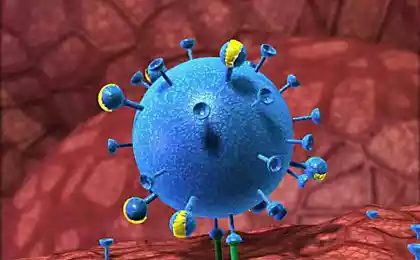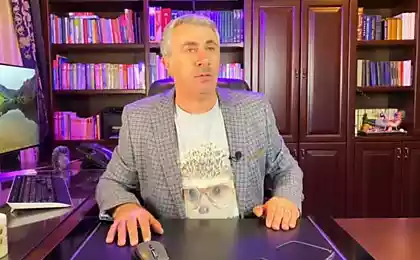224
The Pandemic Talk That Proved Children Are Smarter Than Many Adults
How they behave children during a pandemic? Some feel anxious and anxious because they understand what is happening. Others don’t see the world as serious. It's just that the parents didn't tell them what was going on, trying to keep them safe. However, the famous psychologist Dmitry Karpachev believes that this is fundamentally wrong.
Experts believe that during a pandemic, children are subject to severe influence of the media. The sources are not always reliable. In order not to injure the flexible psyche of a child, it is necessary to talk with him about world problems. How and why to do this, detailed in today’s article.
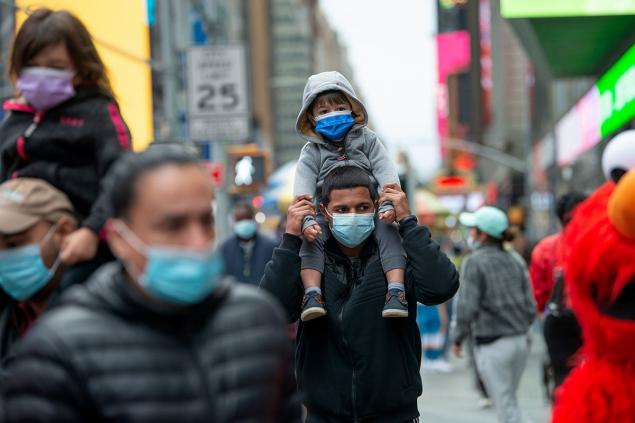
GettyImages Children in a Pandemic Why talk to a child about a pandemic? First of all, so you Minimize the level of psychological stress. Children are more susceptible to life changes and do not always understand what to believe. Parents should be the most reliable source of new information. It should be presented in an adequate manner. So that the child understands its essence.
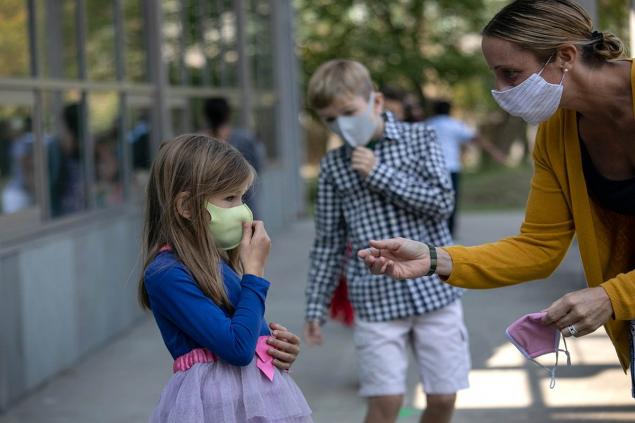
GettyImages Mom and Dad need to work hard to broadcast their child true information. For that. It is important to use verified channels.Not just passing on more rumors. In addition, you need to teach the child to think critically and analyze the problem. As a result, the child will not panic and worry again.
The main task of parents is to Explain difficult things to a child in simple words. By the way, this can help to establish contact with children and strengthen trusting relationships.
How children perceive serious information depends on the age of the child. Therefore, parents should consider this and filter the volume of news. For example, children of preschool and primary school age should not be overloaded. It is enough to explain what coronavirus is, how it is transmitted and why quarantine restrictions are necessary. Simple causal relationships in accessible language.
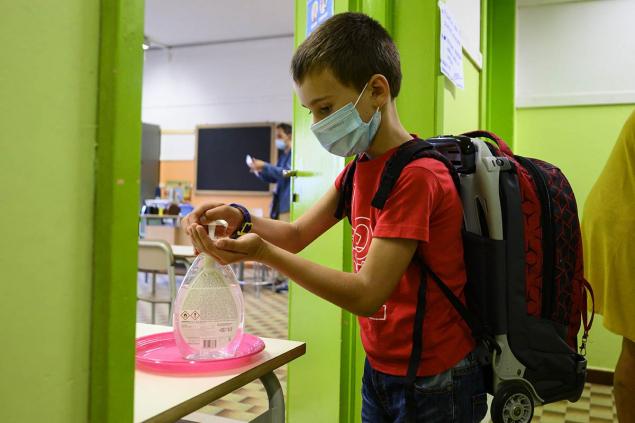
GettyImages Children from 9 to 13 years old are more aware of why the virus should be feared. But they don’t always take it seriously. Therefore, mom and dad should explain to the child what the difference is between quarantine and vacation. Teach the child to carefully monitor personal hygiene and not take everything said by other people at face value.
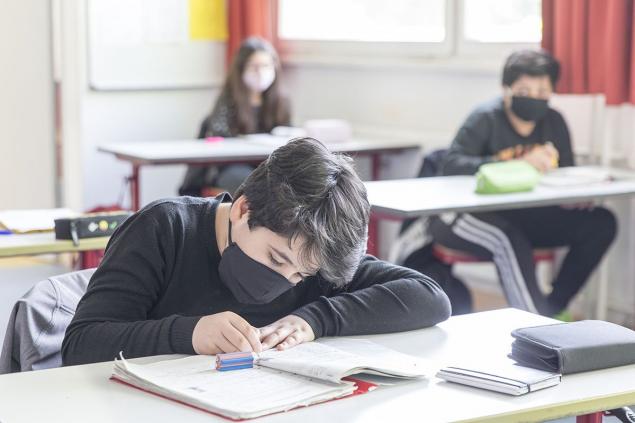
GettyImages Things are much more complicated with teenagers. Parents should not just explain the situation, but give her a critical assessment. In many ways, the behavior of the child reflects the behavior of the mother or father. For example, if they neglect the banal means of personal protection, the teenager will do the same. Parents should set the right example for their children.
Let your child feel part of the team: We have to follow the rules to protect ourselves. For that, we need your help.” First, explain how to wash your hands properly. In order for the child to withstand as much as 20 seconds at the sink, let him learn a poem by I. Ordinary and repeat it aloud twice:
There are viruses.
Vulnerable viruses.
They'll put the baby in the mouth.
They'll hurt your stomach.
These are the viruses.
Vulnerable viruses!
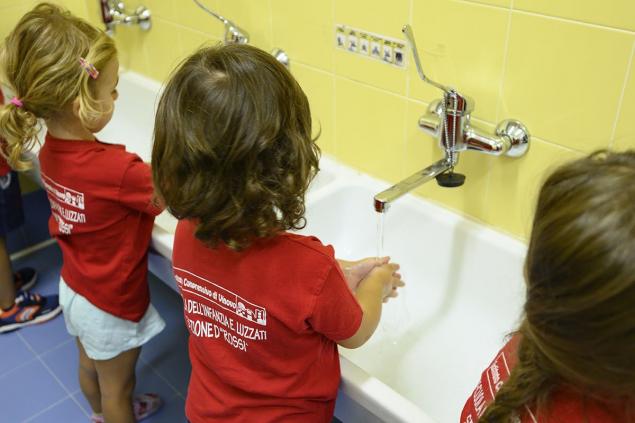
GettyImages Second, show your child how to properly wear personal protective equipment. To prevent him from removing the mask in public, make it bright and original. In addition, children should understand why social distance is necessary and why it is worth saying hello to people without contact.
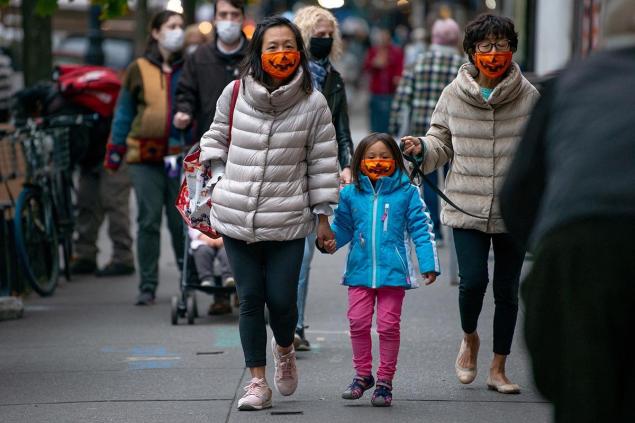
Children also need to understand why they should not touch their face and eyes with their hands. touch. Parents, play a scene for the child. Someone sneezes in the palm and touches the railing in the tram. Someone else will touch them and then forget to wash their hands and get sick. The example is banal, but working.
How to calm a child The more a person panics, the worse it works protective reactions. And this applies not only to the coronavirus, but also to other infections. Therefore, if you see that the child is seriously worried, explain to him that it is not worth it. Children get sick much less often and in mild form.
When talking to children, try not to use words like pandemic, crisis, infection. The emotional background of the family In general, it affects the well-being of the child. You need to think positively and believe in the best.
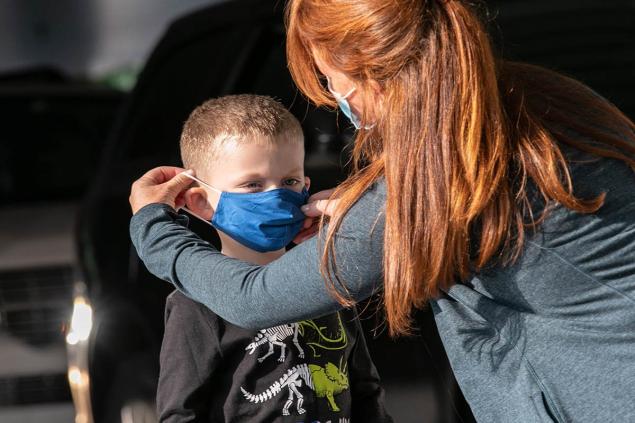
GettyImages I wonder if you share the point of view of Dmitry Karpachev? Does your child know what a coronavirus is? We hope for your feedback in the comments. Take care of yourself and your family!
Photo preview and article .
Experts believe that during a pandemic, children are subject to severe influence of the media. The sources are not always reliable. In order not to injure the flexible psyche of a child, it is necessary to talk with him about world problems. How and why to do this, detailed in today’s article.

GettyImages Children in a Pandemic Why talk to a child about a pandemic? First of all, so you Minimize the level of psychological stress. Children are more susceptible to life changes and do not always understand what to believe. Parents should be the most reliable source of new information. It should be presented in an adequate manner. So that the child understands its essence.

GettyImages Mom and Dad need to work hard to broadcast their child true information. For that. It is important to use verified channels.Not just passing on more rumors. In addition, you need to teach the child to think critically and analyze the problem. As a result, the child will not panic and worry again.
The main task of parents is to Explain difficult things to a child in simple words. By the way, this can help to establish contact with children and strengthen trusting relationships.
How children perceive serious information depends on the age of the child. Therefore, parents should consider this and filter the volume of news. For example, children of preschool and primary school age should not be overloaded. It is enough to explain what coronavirus is, how it is transmitted and why quarantine restrictions are necessary. Simple causal relationships in accessible language.

GettyImages Children from 9 to 13 years old are more aware of why the virus should be feared. But they don’t always take it seriously. Therefore, mom and dad should explain to the child what the difference is between quarantine and vacation. Teach the child to carefully monitor personal hygiene and not take everything said by other people at face value.

GettyImages Things are much more complicated with teenagers. Parents should not just explain the situation, but give her a critical assessment. In many ways, the behavior of the child reflects the behavior of the mother or father. For example, if they neglect the banal means of personal protection, the teenager will do the same. Parents should set the right example for their children.
Let your child feel part of the team: We have to follow the rules to protect ourselves. For that, we need your help.” First, explain how to wash your hands properly. In order for the child to withstand as much as 20 seconds at the sink, let him learn a poem by I. Ordinary and repeat it aloud twice:
There are viruses.
Vulnerable viruses.
They'll put the baby in the mouth.
They'll hurt your stomach.
These are the viruses.
Vulnerable viruses!

GettyImages Second, show your child how to properly wear personal protective equipment. To prevent him from removing the mask in public, make it bright and original. In addition, children should understand why social distance is necessary and why it is worth saying hello to people without contact.

Children also need to understand why they should not touch their face and eyes with their hands. touch. Parents, play a scene for the child. Someone sneezes in the palm and touches the railing in the tram. Someone else will touch them and then forget to wash their hands and get sick. The example is banal, but working.
How to calm a child The more a person panics, the worse it works protective reactions. And this applies not only to the coronavirus, but also to other infections. Therefore, if you see that the child is seriously worried, explain to him that it is not worth it. Children get sick much less often and in mild form.
When talking to children, try not to use words like pandemic, crisis, infection. The emotional background of the family In general, it affects the well-being of the child. You need to think positively and believe in the best.

GettyImages I wonder if you share the point of view of Dmitry Karpachev? Does your child know what a coronavirus is? We hope for your feedback in the comments. Take care of yourself and your family!
Photo preview and article .
The cross of a husband who has another family on the side
Home things, the fault of which old age prematurely sneaks under the blanket


